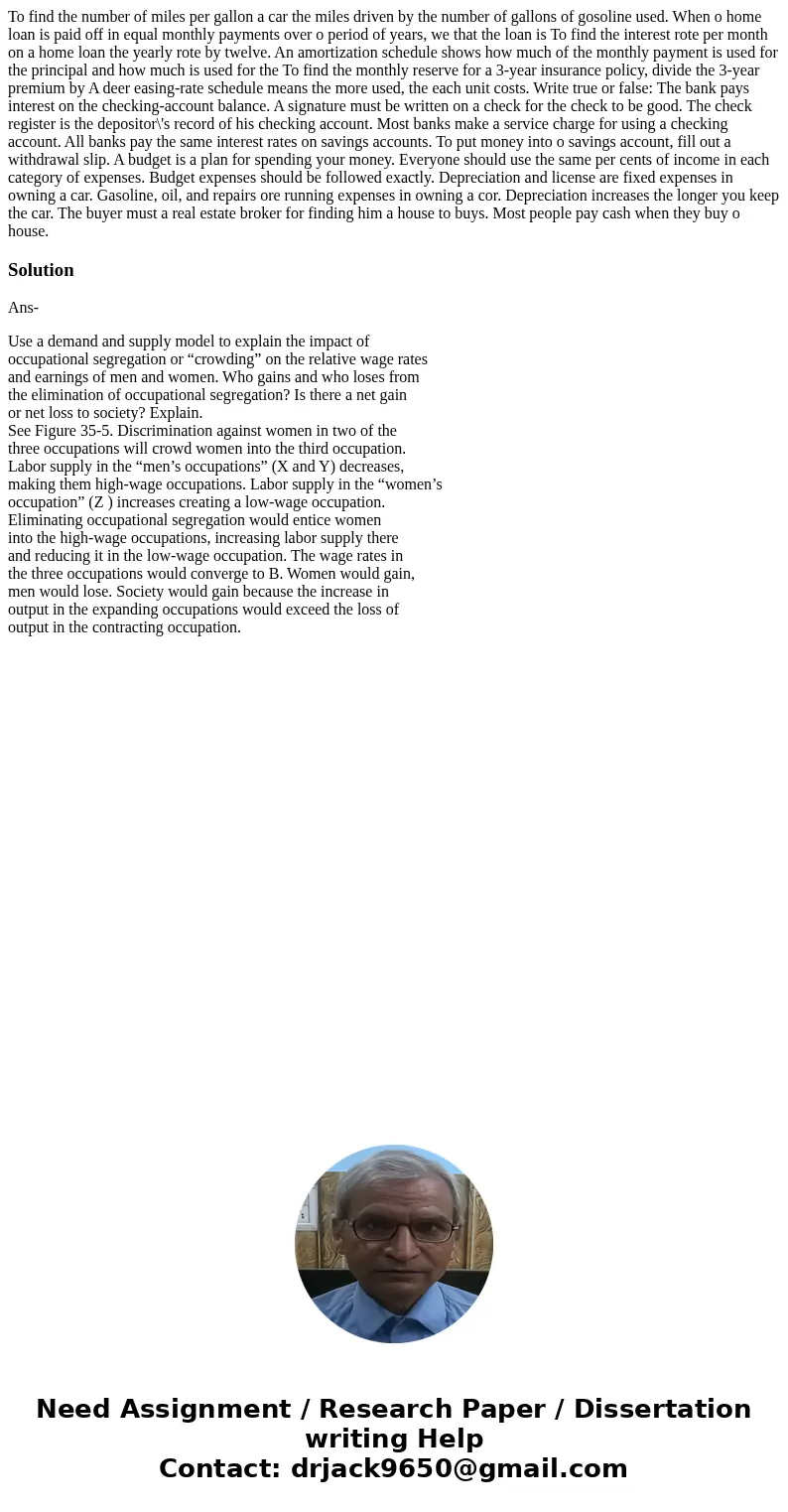To find the number of miles per gallon a car the miles driven by the number of gallons of gosoline used. When o home loan is paid off in equal monthly payments over o period of years, we that the loan is To find the interest rote per month on a home loan the yearly rote by twelve. An amortization schedule shows how much of the monthly payment is used for the principal and how much is used for the To find the monthly reserve for a 3-year insurance policy, divide the 3-year premium by A deer easing-rate schedule means the more used, the each unit costs. Write true or false: The bank pays interest on the checking-account balance. A signature must be written on a check for the check to be good. The check register is the depositor\'s record of his checking account. Most banks make a service charge for using a checking account. All banks pay the same interest rates on savings accounts. To put money into o savings account, fill out a withdrawal slip. A budget is a plan for spending your money. Everyone should use the same per cents of income in each category of expenses. Budget expenses should be followed exactly. Depreciation and license are fixed expenses in owning a car. Gasoline, oil, and repairs ore running expenses in owning a cor. Depreciation increases the longer you keep the car. The buyer must a real estate broker for finding him a house to buys. Most people pay cash when they buy o house.
Ans-
Use a demand and supply model to explain the impact of
occupational segregation or “crowding” on the relative wage rates
and earnings of men and women. Who gains and who loses from
the elimination of occupational segregation? Is there a net gain
or net loss to society? Explain.
See Figure 35-5. Discrimination against women in two of the
three occupations will crowd women into the third occupation.
Labor supply in the “men’s occupations” (X and Y) decreases,
making them high-wage occupations. Labor supply in the “women’s
occupation” (Z ) increases creating a low-wage occupation.
Eliminating occupational segregation would entice women
into the high-wage occupations, increasing labor supply there
and reducing it in the low-wage occupation. The wage rates in
the three occupations would converge to B. Women would gain,
men would lose. Society would gain because the increase in
output in the expanding occupations would exceed the loss of
output in the contracting occupation.

 Homework Sourse
Homework Sourse